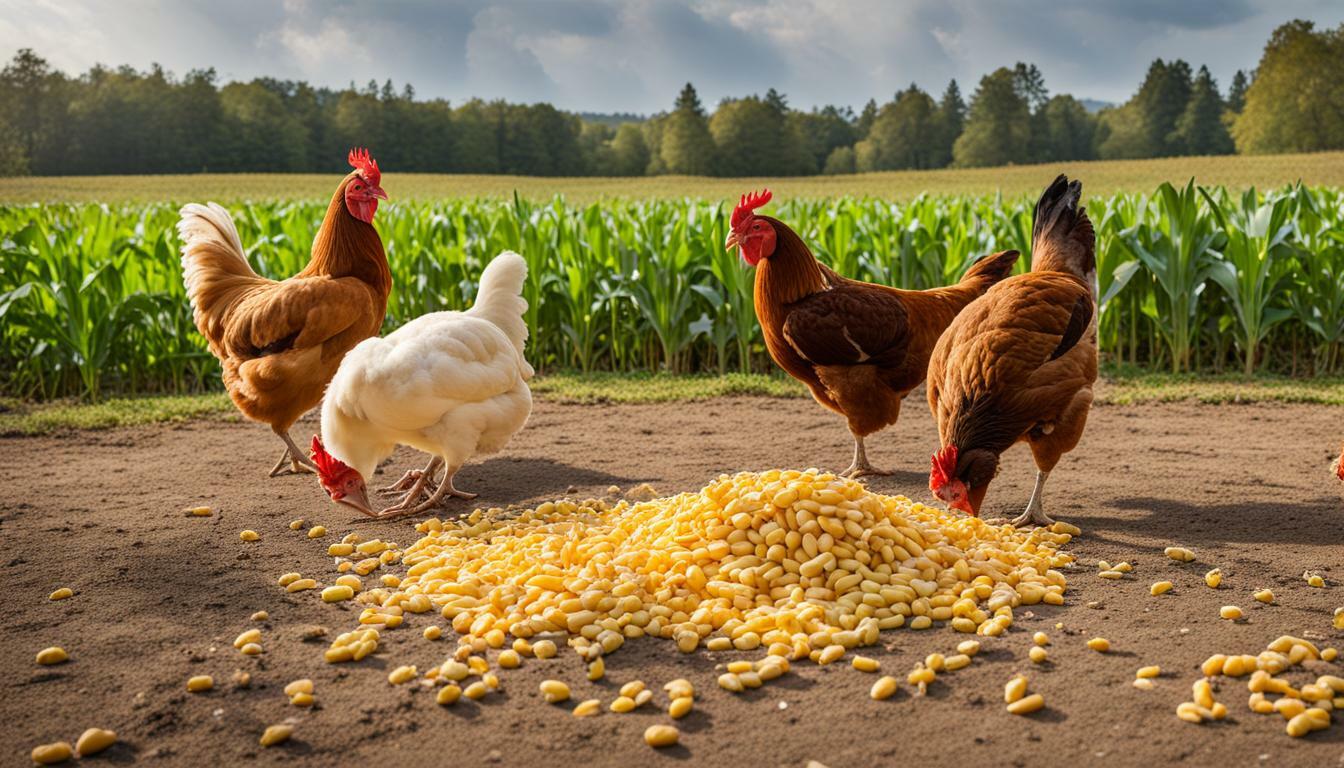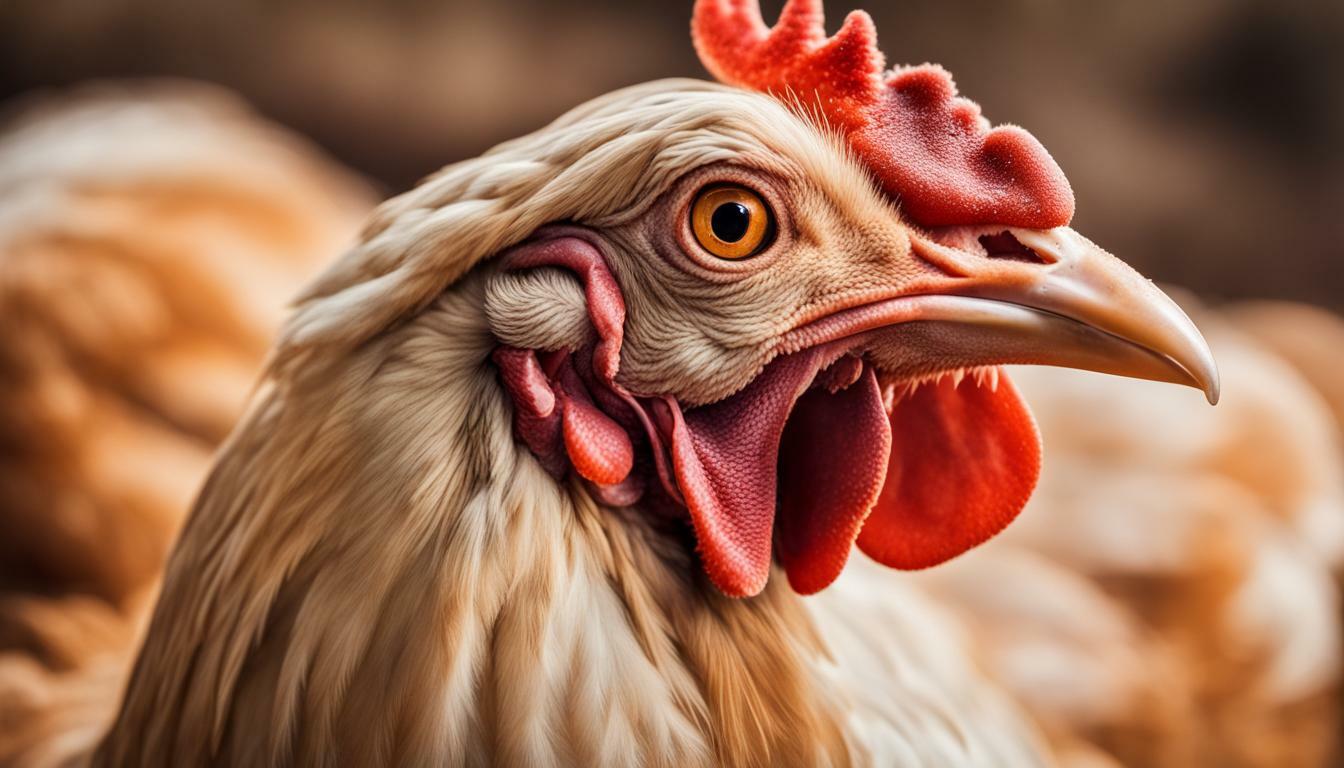Can Chickens Eat Onions? A Complete Guide
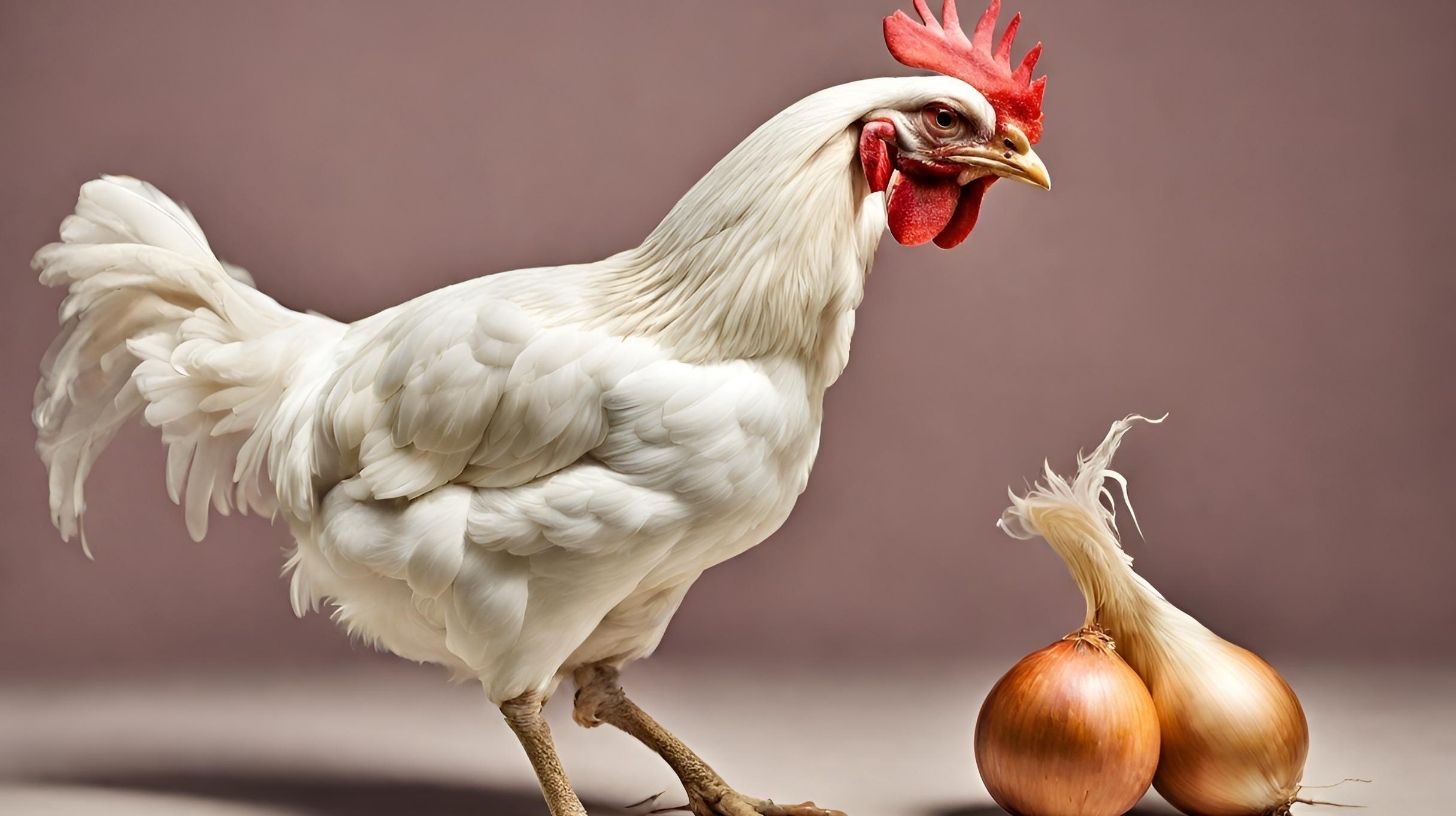
Table of content:
- Can Chickens Eat Onion Skins and Raw Onions?
- Are Onions Toxic to Chickens? Dosage and Effects
- Can Chickens Eat Onion Powder and Dried Onions?
- Are Cooked Onions Safe for Chickens?
- Can Chickens Eat These Other Types of Onions?
- Feeding Onions to Chickens: Dos and Don’ts
- Onion Nutrition & Benefits for Chickens
- Can Chickens Eat Other Vegetable Scraps?
- Frequently Asked Questions About Chickens Eating Onions
- Conclusion
Onions are a common vegetable found in many kitchens, but you may be wondering if chickens can eat onions and if it is safe to feed onions to chickens. This complete guide will cover all the important questions around feeding onions to chickens to help you make the right choices for your flock’s health.
Key Takeaways:
- Raw onions contain compounds that can be harmful to chickens in large amounts. Small quantities of cooked onions are usually safe.
- Onion skins, powders, and fried onions can be fed to chickens in moderation. Avoid raw onions.
- Cooked onions provide some nutritional benefits and vitamins for chickens. But too much onion can cause digestive upset.
- Green onions, chives, and shallots are safer onion varieties for chickens than yellow or white onions.
- Introduce onions slowly and monitor chickens for any adverse reactions. Remove onions from diet if issues arise.
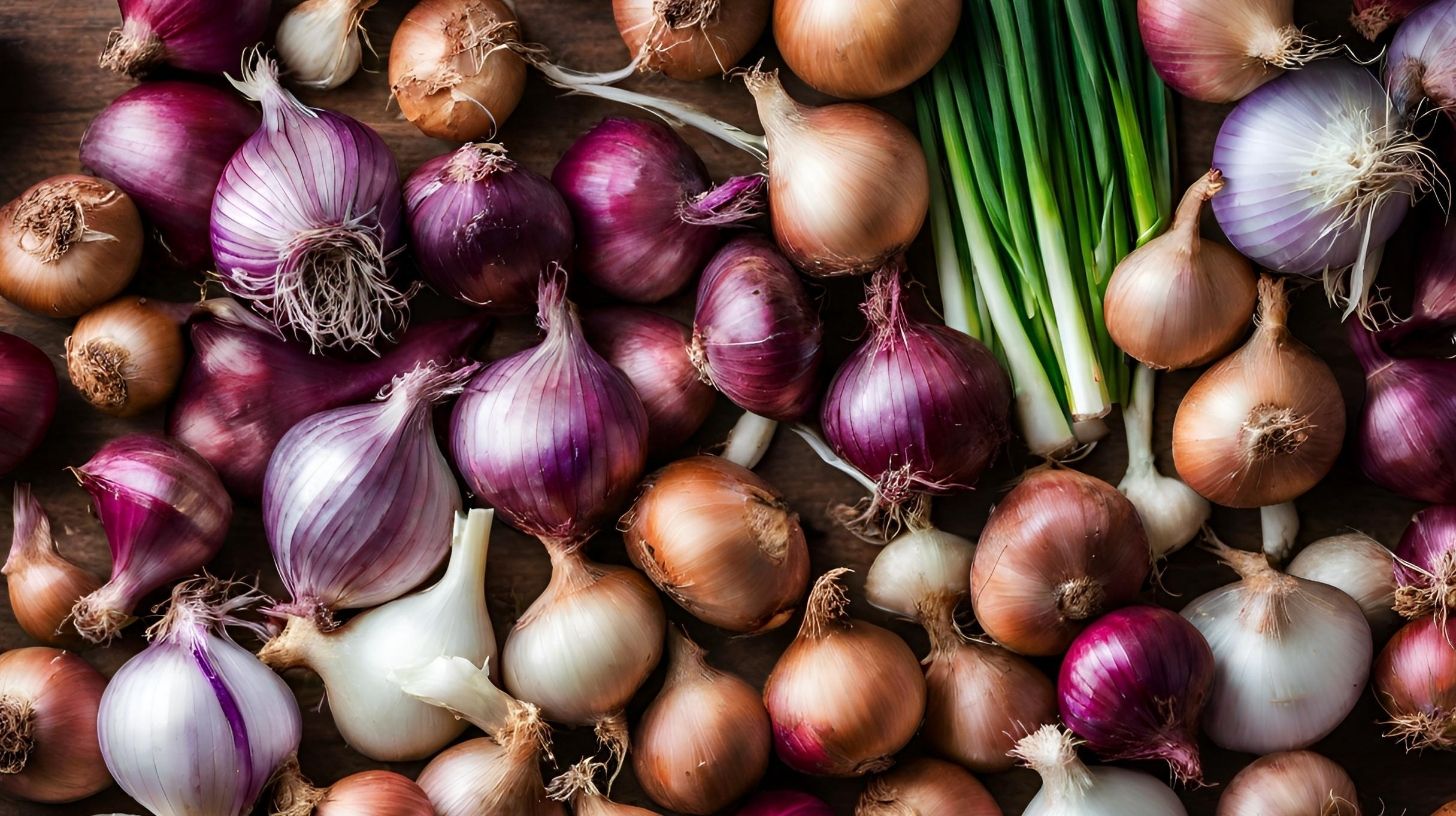 Can Chickens Eat Onion Skins and Raw Onions?
Can Chickens Eat Onion Skins and Raw Onions?
Chickens can eat small amounts of onion skins and cooked onions but raw onions should be avoided. Onions contain compounds that can irritate chickens’ digestive systems and potentially cause anemia or other problems if consumed in excess.
Raw onions and skins have higher concentrations of these irritating compounds. Cooking helps neutralize some of the harsh effects. But moderation is still important even with cooked onions.
Are Onions Good or Bad for Chickens?
Onions are not highly toxic to chickens but do have some properties that make them hard for chickens to digest. Specifically:
- Onions contain n-propyl disulfide and other sulfides that can disrupt a chicken’s red blood cell health leading to anemia at high levels.
- Compounds in onions can irritate chickens’ gastrointestinal tract and cause upset stomach, diarrhea, or other issues.
- Raw onions have more concentrated, harsher digestive effects compared to cooked onions for chickens.
So onions are not strictly “bad” but do need to be limited and prepared properly for chickens.
Can Onions Kill Chickens or Seriously Harm Them?
It is very unlikely onions would kill a chicken. But in excessive amounts over time, onions can potentially cause:
- Anemia: Destruction of red blood cells leading to iron deficiency, weakness, and other problems.
- Digestive irritation: Upset stomach, diarrhea, weight loss from GI inflammation.
- Reduced egg production: Impacts to nutrition and health lowering a hen’s egg output.
These effects require high onion consumption over an extended period. Brief exposure or small servings of onions do not seriously harm chickens. Monitor your flock when feeding onions and remove from diet if any concerns arise.
Are Onions Toxic to Chickens? Dosage and Effects
Onions contain sulfur compounds and other substances that can be toxic to chickens if consumed in large quantities over time. However, the small amounts of onions commonly added to chicken feed or provided as occasional treats are not considered dangerous.
What Quantity of Onions is Toxic?
There is no definitive toxic threshold since it depends on the health and size of the chicken. But as a general guideline:
- More than 1 ounce of raw onions per 2 lbs chicken body weight could have toxic effects.
- 1/2 ounce of onion per 2 lbs of chicken is potential maximum for daily feeding.
Again, moderation is key. Chickens tolerate cooked onions better than raw.
Onion Toxicity Symptoms in Chickens
Watch for these signs that onions may be harming your flock:
- Listlessness, lethargy, weakness
- Decreased egg production
- Difficulty breathing
- Swollen joints
- Pale combs and wattles
- Watery, bloody stool
- Weight loss
Remove onions from the diet if chickens show these symptoms and consult a veterinarian if they persist.
Can Chickens Eat Onion Powder and Dried Onions?
Onion powder and dried onions are better options than raw onions for chickens but still need moderation. The drying and powdering process helps mellow the harsh sulfur compounds in onions that can irritate chickens’ digestion.
Dried onion flakes or onion powder can provide flavor to chickens’ feed or treats without the high risk of raw onions. But only use them in small amounts. 1-2 teaspoons of onion powder per chicken per week is a reasonable amount.
Are Cooked Onions Safe for Chickens?
Properly cooked onions are safer for chickens than raw onions. Cooking, boiling, sautéing, or frying onions reduces the potency of the irritating compounds.
Some cooked onion options for chickens include:
- Sautéed onions: Cook chopped onions in olive oil on medium-low heat until soft and translucent
- Caramelized onions: Cook onions in oil on low heat for 30-60 minutes until browned and softened
- Boiled onions: Rough chop onions and boil in water for 10-15 minutes until softened
- Baked or roasted onions: Roast chopped onions tossed in olive oil at 400°F for 30-45 minutes
Start with small servings of 1 tablespoon per chicken when introducing cooked onions. Monitor for reactions and increase amount slowly over 2-3 weeks.
Are Fried Onions Okay for Chickens?
Fried onions are another onion option that chickens can eat in moderation. Try making fried onion rings without seasoning or serve small portions of French onion crisp bits as garnish on other foods.
Go easy on the oil and salt when cooking fried onions for chickens. 1-2 rings or tablespoons of fried onions per bird once or twice a week is a good guideline.
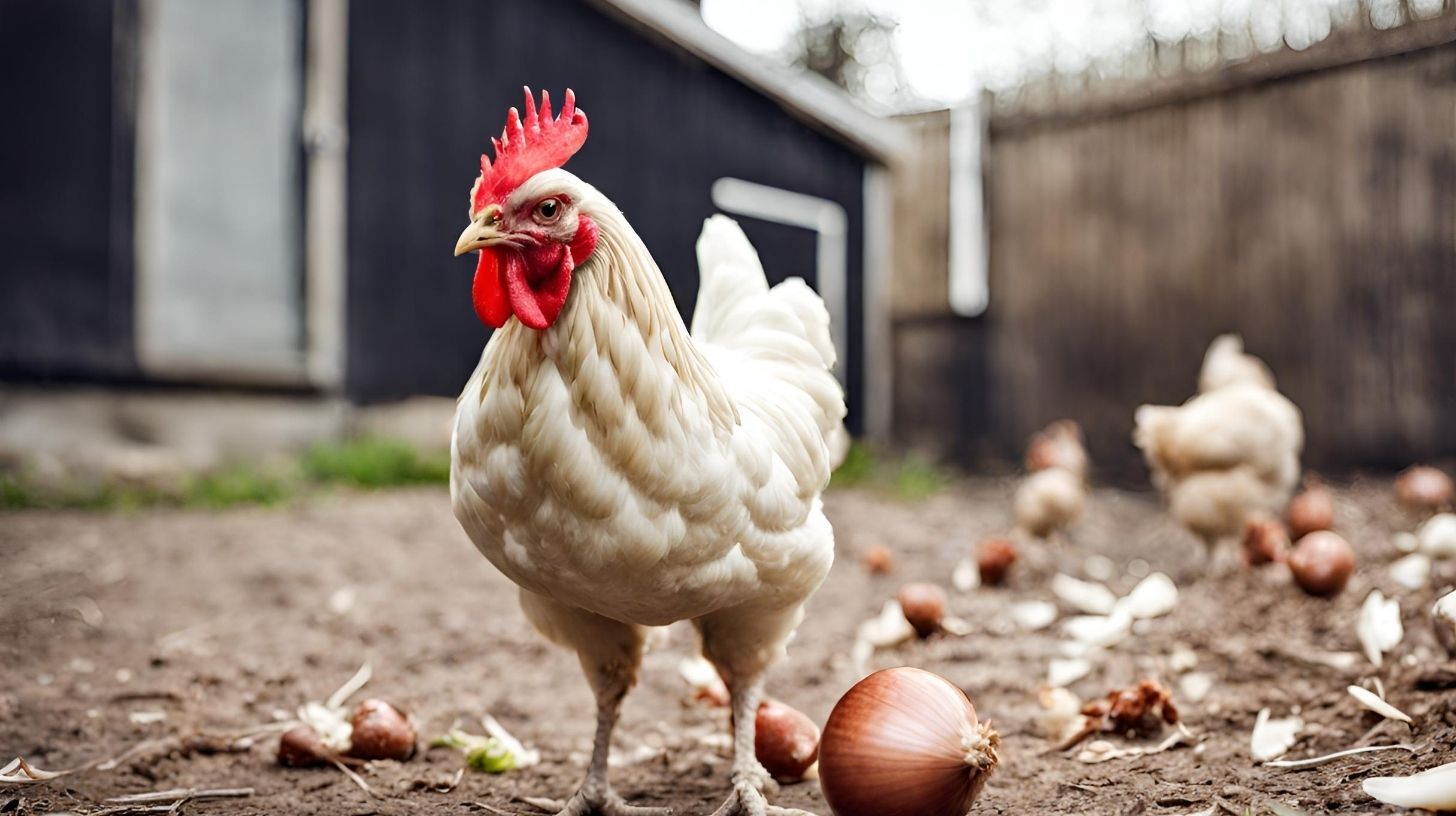 Can Chickens Eat These Other Types of Onions?
Can Chickens Eat These Other Types of Onions?
Not all onions have the same level of compounds that can irritate chickens. Some types are safer options:
Green Onions and Chives
Green onions (scallions) and chives contain significantly lower amounts of the harsh sulfur compounds in other onion varieties. They offer vitamins and nutrients with less risks.
Chop up green parts of scallions and mix a tablespoon per chicken into feed 2-3 times a week. Chives can be served fresh cut or dried as flavorful treats.
Shallots
Shallots are a member of the onion family that can also be fed to chickens in moderation. They have lower sulfur content. Sauté 1-2 tablespoons of chopped shallots per bird 2-3 times a week.
Sweet Onions
Sweet onions like Vidalia and Walla Walla onions are lower in sulfur compounds and can be fed judiciously. Cook them thoroughly and start with small amounts to observe effects.
Red and White Onions
Red and white onions typically have higher irritant compound levels. Cook them thoroughly and feed smaller amounts less frequently than green onions or shallots.
| Onion Type | Safety Level for Chickens |
|---|---|
| Green Onions, Chives | Safer |
| Shallots | Safer |
| Sweet Onions | Low-Moderate |
| Red, White Onions | Moderate Risk |
| Raw Onions | Highest Risk |
Feeding Onions to Chickens: Dos and Don’ts
Follow these dos and don’ts for safely feeding onions to chickens:
DON’T Feed Raw Onions
Raw onions pose the highest risk to chickens. Avoid feeding chickens raw onions or raw vegetable scraps containing onions.
DON’T Overdo It on Onion Amounts
Moderation is crucial. Stick to a maximum of 1 ounce of cooked onions per 2 lbs chicken body weight per day.
DO Introduce Slowly
When first feeding onions, start with a small amount such as 1 teaspoon per chicken and gradually increase over 2-3 weeks while monitoring chicken’s health.
DO Cook Them Thoroughly
Proper cooking helps reduce the harsh compounds in onions. Sauté, roast, boil, or fry thoroughly before feeding onions.
DO Choose Low-Risk Onion Types
Stick to milder onion varieties like shallots, green onions, or sweet onions over red, white, or yellow onions.
DO Adjust as Needed
If chickens show adverse reactions to onions, remove onions from their diet and contact your veterinarian if symptoms persist.
Onion Nutrition & Benefits for Chickens
When fed judiciously, onions can provide some nutritional value as part of a varied diet:
- Vitamin C: Onions contain vitamin C to support chickens’ immune systems.
- Antioxidants: Onions have compounds like quercetin that combat cell damage.
- Prebiotics: Onions provide non-digestible fibers that promote gut health.
- Minerals: Onions contain small amounts of calcium, potassium, folate and other minerals.
However, the risks of overfeeding onions usually outweigh their limited benefits for chickens. Focus on providing a diverse diet from multiple food groups without heavily relying on onions for nutrition.
Can Chickens Eat Other Vegetable Scraps?
Chickens can eat a wide variety of vegetables in moderation. Some veggie scraps to consider feeding chickens include:
- Carrot tops and peeled carrots
- Lettuce leaves and cores
- Broccoli stalks and florets
- Squash flesh and rinds
- Beet greens
- Spinach leaves
- Cucumber ends
- Radish greens
- Potato peels (cooked, green parts removed)
Always introduce new foods slowly. Observe how chickens react and adjust their diets accordingly. Variety is key for balanced nutrition.
Frequently Asked Questions About Chickens Eating Onions
How much onion can chickens eat safely?
A maximum of 1 ounce of cooked onions per 2 lbs of chicken body weight per day is a reasonable guideline. Start with 1 teaspoon onion per bird and slowly increase weekly while monitoring health.
What are signs of onion poisoning in chickens?
Look for lethargy, weakness, panting, pale combs, drop in egg production, watery or bloody stool, and unwillingness to eat. Remove onions and contact a vet.
Do onions need to be restricted for chickens altogether?
Not necessarily, but onions should be limited and fed properly. Cook onions thoroughly, choose milder varieties, and feed smaller amounts less frequently.
Can chickens eat onion grass or wild onions?
It’s best to restrict chickens’ access to wild onion grass. Forage quantities are hard to control and may provide excessive onion consumption.
Can chickens eat garlic as an alternative?
Garlic is safer than onions for chickens but also must be limited to avoid anemia. Crush a clove and mix with feed once weekly. Don’t exceed 1 clove per bird.
What vegetables can chickens eat instead of onions?
Focus on lettuce, carrots, squash, broccoli, spinach, cabbage, beet greens, and other veggies as healthy treats. Variety is important.
Conclusion
Onions are not an ideal food for chickens but small amounts can be fed safely. Always cook onions thoroughly, choose milder types like shallots and scallions, introduce slowly, and monitor chickens’ health when feeding onions. Completely avoid raw onions which pose the most risks. Focus on providing a diverse diet from all food groups for optimal nutrition. With some care and caution, limited onions can be part of a balanced diet for chickens.
Welcome. I’m Adreena Shanum, the proud owner of this website, and I am incredibly passionate about animals, especially poultry. I founded adreenapets.com as a labor of love, stemming from my desire to share my knowledge and experiences with poultry enthusiasts worldwide.


